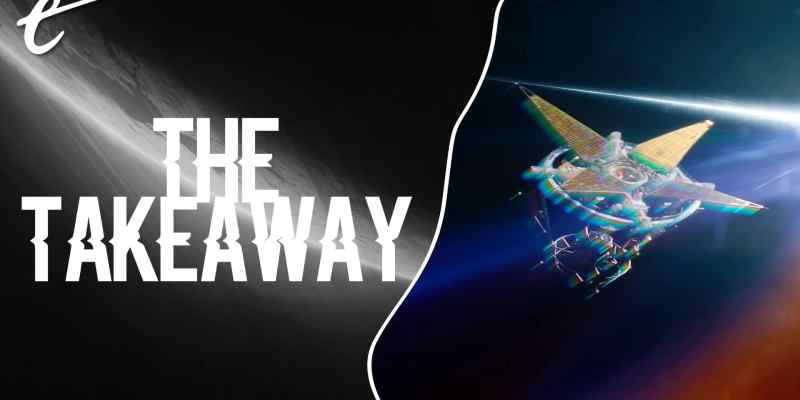E3 2021 is less than three weeks away, and across the internet you get a sense that fan expectations are starting to boil. With games like Halo Infinite, Far Cry 6, and Psychonauts 2, there’s a growing level of excitement to catch a new glimpse of some of the most anticipated sequels on the horizon. But while there are countless games I’m looking forward to, Bethesda’s Starfield has been the center of the most buzz around the internet lately. And while it’s not surprising that the next big adventure from one of the industry’s most revered developers is drawing a lot of excitement, it feels like we’re getting dangerously close to Starfield becoming a victim of its own hype cycle.
Starfield was announced three years ago at Bethesda’s E3 2018 conference (the same E3 conference where The Elder Scrolls VI was revealed), in a minute-long teaser trailer that showed off a planet, a space station, and the name of the game. And since then, there really hasn’t been any official news. We don’t know anything concrete about the game’s story or gameplay, other than what can be inferred from Bethesda Game Studios’ previous work on Fallout and The Elder Scrolls.
In the years since then, the concrete details surrounding the game have been few and far between. For one, unlike Fallout 76, Starfield will be a single-player experience. And now that Bethesda is part of the Microsoft family, the game will launch on Game Pass. Also, its name sounds like Garfield, the game may or may not contain ladders, and Tom Cruise is definitely, probably, maybe appearing in it. But all jokes and bizarre memes aside, shockingly little is known about a game that has drummed up such massive levels of hype and discourse online. And this hasn’t gone unnoticed by the folks making it.
Following Microsoft’s acquisition of Bethesda this fall, Pete Hines, Todd Howard, and Phil Spencer joined Major Nelson for a roundtable discussion on the Xbox Podcast to talk more about what the deal means for all parties moving forward. When asked about Starfield, Howard responded, “I think it’s getting really good hype for a game no one has seen.” And while the panelists all laughed, that statement got to the heart of the issue here. Despite the fact that we’ve seen absolutely no gameplay, Starfield has evolved into something else entirely thanks to the ever-flowing churn of online hype.
Partly due to the lack of anything concrete over the past three years, the hype around Starfield has created its own orbit. Rumors that Sony was attempting to lock down some form of exclusivity preceding Microsoft’s acquisition of Bethesda have segued into growing reports that this will be the first in a long line of Xbox- and PC-exclusive Bethesda games post-acquisition. In either case, Starfield will be weaponized to fuel the eternally obnoxious console wars.
If you’re a fan of Skyrim and Fallout 3, then Starfield is the game that will return Bethesda to its fighting form. If you have an Xbox avatar on Twitter, Starfield is the saving grace that will finally level the console war playing field. And if you’ve got a PlayStation 5 tattoo, then Starfield isn’t all that big of a deal (unless it turns out to be multiplatform, in which case it’s the biggest RPG of the decade).
The reality is, at this moment, Starfield is none of those things because the public hasn’t seen it. Instead, it’s more of a conceptual imago that folks unfairly project their own wants, desires, worries, and expectations onto.

Aside from personal projections, the hype around the game also extends into any and all permutations of its release date. One moment there’s a report that it’s later in 2021 because the game has been feature-complete for years. The next, folks are sure that it’s the lovely sounding 2-22-22 next February that would echo Skyrim’s 11-11-11 date. Tomorrow morning, it’s moved to sometime much later in 2022. And again, all of this is without Bethesda or Microsoft having to utter a peep. And while the swirling morass of rumors these past three years has ostensibly been free marketing for a game that we know nearly nothing about, that can also just as easily backfire.
If you’re trying to place blame for this, I genuinely feel like there’s enough to go around. It’s partly on the developers and publishers who announce a game not only years before a rational release date, but also years before there’s really anything tangible to show off. And in turn, that seismic interim is filled with lofty promises that can’t possibly be met, as well as countless articles, videos, and podcasts from folks like me telling you why you should / should not be excited for X, Y, and Z. And finally, the everlasting hype is partly formed from each of us as individual fans, who refuse to follow the proverb of “once bitten, twice shy.”
It’s natural to have faith in a developer who has delivered multiple experiences that have really resonated with you. I went into games like Red Dead Redemption 2, The Last of Us Part II, and Hades under the assumption that I was going to dig them, given how much I’ve loved the respective games that came before. And sure enough, all three became some of my favorite games of this past generation.

But this isn’t always the case, as we saw in recent years with a pair of BioWare games — Mass Effect Andromeda and Anthem — and more recently with Cyberpunk 2077. The years of anticipation, incredible E3 demos, lofty promises, and pedigree that came from developer CD Projekt Red all congealed into one of the most anticipated games of the past decade. And quite frankly, I’m not sure it would’ve been possible for anything to meet those lofty aspirations. But it’s safe to say that what we saw at launch in December was certainly a disappointment to most.
Now, I’m in no way saying that Starfield is going to be another Cyberpunk. Again, we currently have very little idea of what Starfield actually is. That’s likely to change soon, as we’re almost certainly going to learn much more about it at E3 during the connected conference that Xbox and Bethesda will be holding. But until then, it remains as nebulous as that 60-second teaser was back in 2018.
I’m not telling you to not be excited. I’m personally stoked to hear more about the sequel to The Legend of Zelda: Breath of the Wild, Elden Ring, the next God of War, Project Re Fantasy, Fable, Perfect Dark, IO’s take on James Bond, MachineGames’ Indiana Jones project, anything published by Annapurna, and whatever the hell Hideo Kojima is working on, despite currently knowing next to nothing about any of them. If I weren’t excited about what’s coming up on the horizon, it would probably be about time for me to stop covering video games for a living.
But if I’ve learned anything from doing this professionally for the past decade, it’s to be cautiously optimistic. While it’s truly a miracle that any video game ever gets made in the first place, I find it best to keep my levels of hype at a more down-to-earth level, instead of floating weightless among the stars.
